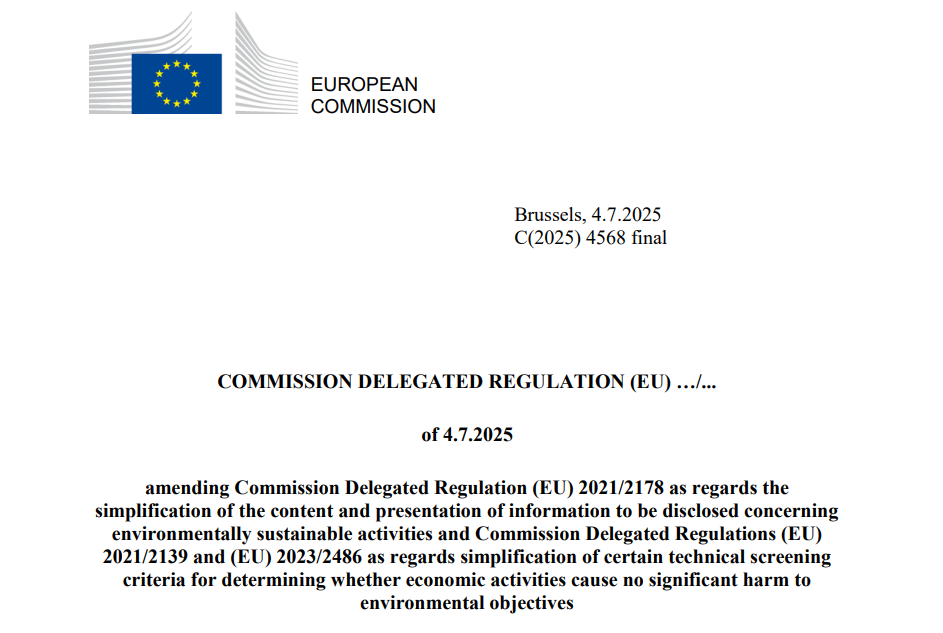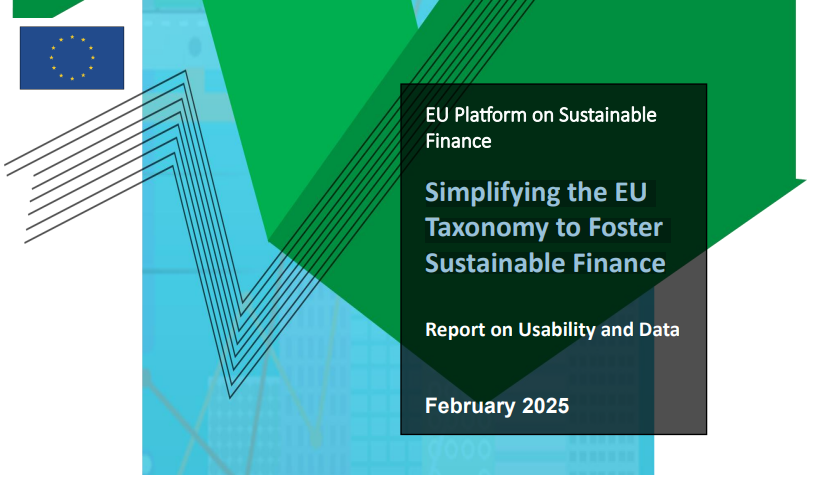EU Taxonomy: Streamlining Reporting and Reducing Administrative Burdens
To reduce the administrative burden for EU companies while preserving core climate and environmental goals, the European Commission has adopted a set of measures to simplify the application of the EU Taxonomy. The changes will apply from 1 January 2026.

The European Commission has adopted targeted amendments to the EU Taxonomy framework, aiming to reduce administrative burdens for companies while maintaining transparency and data quality in sustainability reporting. The adjustments reflect the initial implementation experience of both financial and non-financial undertakings and align with broader EU objectives to facilitate sustainable investment flows.
Simplification of Reporting Requirements
The amendments introduce a materiality threshold, allowing non-financial and financial undertakings to exclude the assessment of Taxonomy alignment for economic activities considered financially immaterial, defined as those cumulatively below 10% of relevant KPIs' denominators. This threshold applies independently across turnover, capital expenditure (CapEx), and operational expenditure (OpEx), enabling companies to concentrate resources on material sustainability disclosures.
For non-financial undertakings, where OpEx is immaterial to the business model, reporting can be limited to the total OpEx figure without Taxonomy alignment assessment. For financial undertakings, exposures to counterparties that are not required to include sustainability information in their management report under Article 19a or 29a of Directive 2013/34/EU and are not subject to reporting obligations under Article 8 of the Taxonomy Regulation may be excluded from the denominator of the relevant KPIs. However, these exposures can be included by financial undertakings if the counterparties voluntarily disclose Taxonomy KPIs or if the exposures finance specific economic activities or assets of those counterparties.
Revision of Templates and Data Points
The delegated act simplifies reporting templates by consolidating summary KPI templates for non-financial undertakings into a single static template instead of three, reducing complexity while maintaining necessary sectoral breakdowns. For Taxonomy-aligned activities, the regulation introduces the reporting of one activity per row, removing the need to report separately on different environmental objectives and on compliance with DNSH and minimum safeguards, thereby simplifying reporting while retaining necessary transparency. This simplification reduces reported data points for non-financial undertakings from 78 to 28 per Taxonomy-aligned activity, representing a 64% reduction. For credit institutions, the simplification of templates will result in a reduction of reported data points of 89%, and the reporting templates of other financial undertakings will also be considerably reduced.
Transitional Measures and Future Reviews
The delegated act provides transitional relief, allowing financial undertakings to opt out of detailed template disclosures until 31 December 2027, instead providing a management report statement indicating that no claims of Taxonomy alignment are made. Additionally, the application of KPIs related to Trading Books and Fees and Commissions is postponed until 2028, ensuring that financial undertakings have adequate time to adjust systems and processes.
The Commission plans a comprehensive review of the Taxonomy technical screening criteria and reporting requirements, focusing on aligning these criteria with existing EU legislation, ensuring clarity, and improving the practical usability of the framework to support scaled sustainable finance.
Conclusion
The amendments to the EU Taxonomy delegated acts reflect a pragmatic step towards proportionality in sustainability reporting while preserving the objectives of the Taxonomy Regulation. By reducing administrative burdens and clarifying requirements, the European Commission aims to support companies in their transition towards sustainable practices and facilitate the effective mobilisation of capital towards the EU’s climate and environmental objectives.
Supporting Materials
Delegated Act amending the Taxonomy Disclosures, Climate and Environmental Delegated Acts



